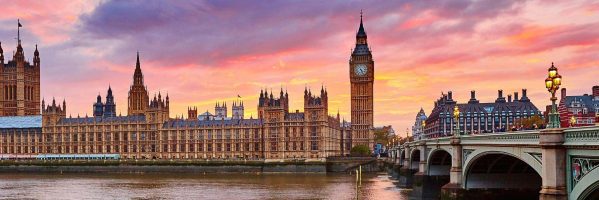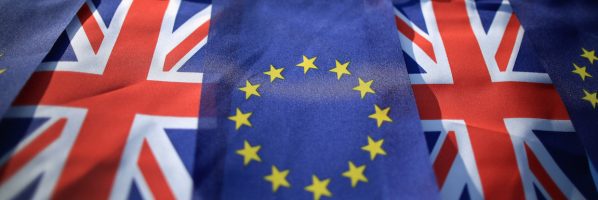Cass MBA London Symposium Talks Branding And Customers

At the City University London Cass School of Business, the London Symposium has become a flagship elective. Since its inaugural class back in 2014, each year it has brought together more than 150 students from all Cass MBA cohorts, as well as the MBA partner school in Europe and South Africa, to attend lectures and learn about leadership and business from some of London’s most prominent and respected business leaders.
On the second day of this year’s symposium, MBA students visited the Science Museum to discuss Brands and Customers with lectures from some of the leading figures in the creative industries and business. The day covered topics such as department store retailing, the challenges of Brexit, customer service and the future of film. Continue reading…
6 UK Business Schools Ranked Top in Executive Education by FT

Executive education and MBA programs typically go hand-in-hand. In most cases, the same professors teach the courses, and the curriculum tends to overlap, though in most cases MBA courses go into far more depth. However, because they can be so closely linked, a highly-ranked executive education program is a good indicator of the quality of the business school. That’s why it’s important to note that six UK business schools made it onto the top 50 list of the 2017 Financial Times Executive Education ranking. Continue reading…
Where To Go In London For An Economics-Focused MBA

The study of economics provides an invaluable perspective for anyone choosing a career in business or areas of the government involved in business. Students that decide to earn an economics-focused MBA gain a deeper understanding of the fundamentals that govern domestic and global economic activity. Those students study the forces that drive markets and the economics of the decision-making processes of business and consumers in the market system.
Columbia Nobel Laureate Joseph Stiglitz Explains Roots of Euro Zone Crisis

Columbia Business School recently published an article that details the fraught history of the Euro since its inception at the 1992 Maastricht Treaty as both a symbol of continental unity and a common currency to “allow investment capital to flow seamlessly over borders.”
International Students Wary Of Potential Immigration Changes

As the wake of the recent presidential election begins to settle, among the first effects has been a possible trajectory change where international students pursue an MBA.
The Financial Times recently followed the story of Amrita Dwivedi, a marketing executive from New Delhi who has worked with Google and Deloitte. Prior to last Tuesday, Nov. 8, 2016, Dwivedi was considered several standout U.S. business schools. After the results, however, they’re rescinding those suggestions, instead opting to focus on the London Business School and Insead to pursue their MBA.
“I want to be able to work in the country where I study after graduation,” they said in an interview with FT reporter Jonathan Moules. “So it is important to be in a place that is immigrant-friendly.”
Even in Europe, however, those options may also soon become limited. Just months after Great Britain opted to leave the European Union, new Prime Minister Theresa May has already gone on record saying that the number of student immigrant visas will likely be reduced. This could also potentially impact Dwivedi’s final decision.
The potential changes come after a wave of international students joined U.S. business schools with a record number of applications at many institutions, including at Michigan Ross.
Ross’ recently hired dean Scott DeRue shared some similar concerns over what could come during a Donald Trump presidency, as the new president-elect has gone on record multiple times against many immigration policies.
“I understand and empathise with those concerns but let’s remember that most presidents campaign in poetry and govern in prose,” DeRue says.
“If there was a restriction on visas to students that would clearly be somewhat harmful to us,” adds Chicago Booth School of Business dean Douglas Skinner. Booth has seen a precipitous rise in applicants in recent years, including a double-digit percentage increase in 2016. However, Skinner notes that nearly a third of students at Booth are from overseas—a figure that’s actually lower than many other business schools across the U.S.
Shading optimism, Skinner also notes that there’s a significant chance that domestic applicants may rise in the wake of policy changes. That, and the fact that Booth has been through some tough times before.
“We have been around since 1898, and the school has survived lots of ups and downs in the economy during that time,” he says.
Brexit And The International MBA

The shockwave of the U.K.’s vote to leave the European Union in late June, 2016, caused an immeasurable amount of ripple effects—many of which are, still, difficult to quantify. Stocks immediately descended upon hearing the news of UK voters opting to the leave the EU by a close margin of 52 percent to 48 percent. Just four months after the move, the value of the English pound fell to its lowest rate in 31 years, according to the Wall Street Journal.
The long-term effect of the vote will take years—potentially decades—to determine. And one of the many areas potentially feeling those drastic effects is the MBA market in London.
As the financial epicenter of the world, London’s prestigious business schools have potentially a lot to lose when it comes to the value of the MBA, not mention the overall cost of earning one. Economic analysts have already speculated that the price of earning an MBA will diminish because of the value of the pound, but small purchases (like the brand new Apple MacBook Pro) will be more expensive in the U.K. than other markets because of the Brexit effect. So concerns, to put it lightly, are all over the map.
According to reports, new U.K. prime minister Theresa May has already gone on record saying that the number of international students joining the UK will be reduced in light of the vote, which was significantly driven by immigration concerns.
“As Home Secretary,” writes Bloomberg reporter Lance Lambert, “she implemented visa changes that made it harder for students from abroad to stay in the country after graduation. A crackdown on immigration was at the heart of the ‘Leave’ movement calling for Britain’s exit [from the EU].”
A crackdown in such a manner could drive a significant portion of potential students to competitive U.S. business schools, making the all-important talent pool more shallow in the U.K.
This isn’t the first attempt from May to curtail international students in recent years. As Home Office Secretary, May imposed tighter restrictions on student visas, which went into effect in 2015. The Chartered Association of Business Schools notes, “Non-EU first-year students studying business and administration in the country last year dropped 8.6 percent to 60,190, the lowest level since 2009-10.”
Of the £3.25 billion business students enter into the U.K. economy, £2.4 billion comes from international students—roughly 73 percent of the total amount. And with the potential £51 billion loss in revenue from British banks, the prestige of joining the finance industry in England may begin to deflate.
Not all news is dour, however. Considering the long-term effects haven’t yet played out, there remains some steady optimism that the negative effects won’t be as disastrous as some speculated.
Andrew Likierman, dean of London Business School, spoke with Bloomberg, saying, “In all of the dealings I’ve had with politicians … our students are precisely who they want to attract to the U.K.” He hopes the moves won’t eliminate top-tier talent from entering the country, rather, weed out the potentially weaker applicants.
“This isn’t the first time people have gotten anxious about globalization. This is just the latest of that manifestation,” Likierman says. “What we’re offering students from all over the world is to get a very global view of business. And the demand for that isn’t going away.”
With preparation for the full move still in its early stages (the U.K. doesn’t officially leave the EU until March 2017), how it will play out is exceptionally uncertain. John McDonnell, Shadow Chancellor of the Exchequer, has gone on record saying that May and her cabinet are still in a “make it up as they go along” type of strategy, which probably doesn’t espouse confidence. The long-term success of the move may be predicated on how the country handles working with international markets, which also affects the value of its academic institutions and the aforementioned MBA programs.
If anything is certain, it is that MBA students will have a large opportunity to learn about the changes government initiatives have on businesses, both domestic and international. It’s just a matter of whether or not students will be in London to learn about it.
